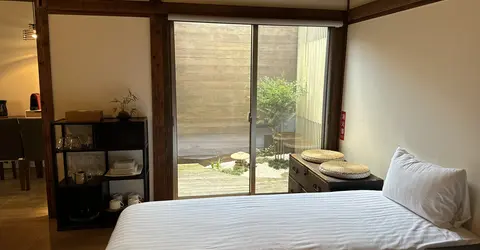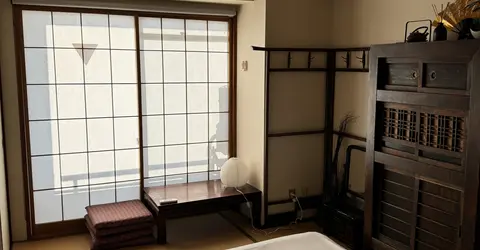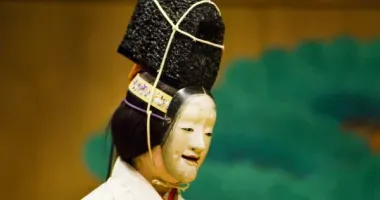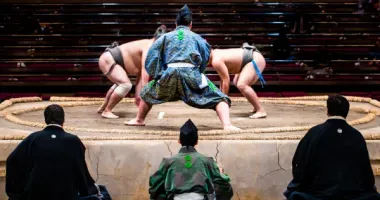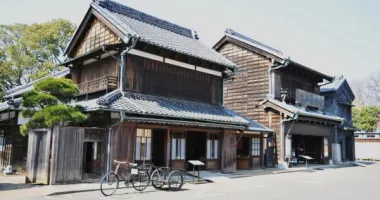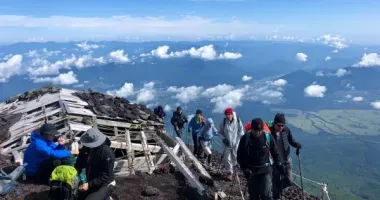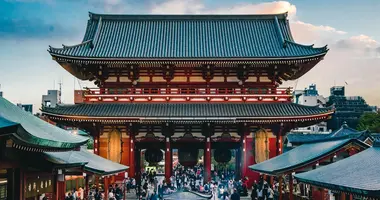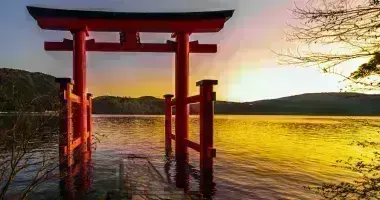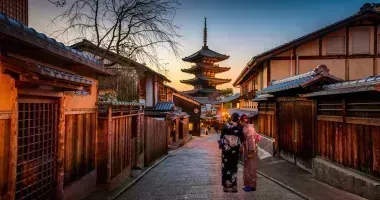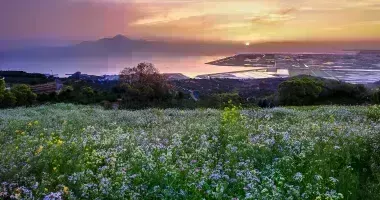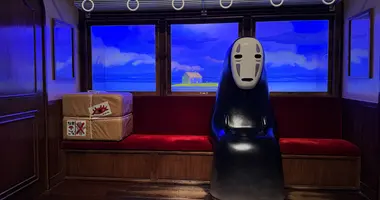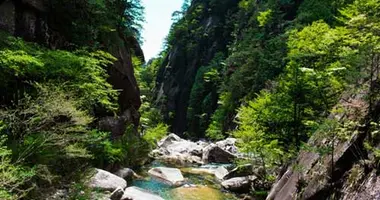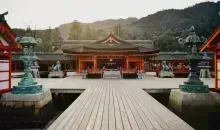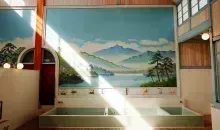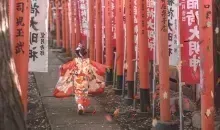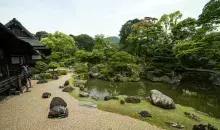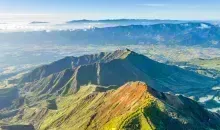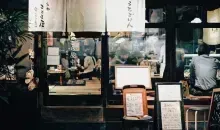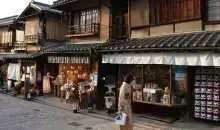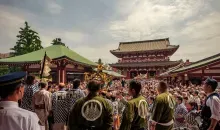Minakami Onsen & Takaragawa Onsen: A guide to Japan's serene hot spring retreats

Takaragawa Onsen, Gunma Prefecture
Nestled in the mountains of northern Gunma Prefecture, Minakami Onsen and Takaragawa Onsen offer a blissful escape into Japan's renowned hot spring culture. These picturesque onsen resorts, just a short journey from Tokyo, provide visitors with a perfect blend of natural beauty, relaxation, and traditional Japanese hospitality. From outdoor baths surrounded by snow-capped peaks to healing mineral waters, these hot springs offer a unique and rejuvenating experience for both seasoned onsen enthusiasts and first-time visitors. Let's embark on a journey to discover the charm and tranquility of Minakami and Takaragawa, exploring their distinct features, bathing etiquette, and the myriad of activities available in this stunning mountain region.
Understanding Minakami's hot spring landscape
Minakami Onsen, located in the heart of Gunma Prefecture, is a popular hot spring destination known for its diverse range of bathing options and stunning natural scenery. The area boasts over a dozen separate hot spring sources, each with its unique mineral composition and therapeutic properties. Minakami Onsen itself is a bustling town centered around numerous hotel complexes, offering a mix of modern amenities and traditional Japanese hospitality.
The hot spring waters in Minakami are renowned for their clarity and lack of strong odor, unlike some other famous onsen areas in Japan. This makes them particularly appealing to those who might be sensitive to the sulfuric smell often associated with hot springs. The mineral-rich waters are said to be beneficial for various ailments, including muscle pain, joint stiffness, and skin conditions.
Beyond the central town, Minakami's hot spring landscape extends to several smaller, more secluded onsen resorts. These include Tanigawa Onsen, nestled at the foot of Mount Tanigawa, and Sarugakyo Onsen, situated next to the picturesque Lake Akaya. Each of these areas offers its own unique atmosphere and bathing experiences, from open-air baths with mountain views to intimate indoor pools.
Exploring Takaragawa Onsen: A riverside oasis
Takaragawa Onsen stands out as a true gem among Japan's hot springs, offering a serene and authentic onsen experience in a stunning natural setting. Located about 30 minutes by road from Minakami town, Takaragawa Onsen is famous for its expansive outdoor baths that sit alongside the crystal-clear Takara River. The name "Takaragawa" translates to "treasure river," and visitors often feel they've discovered a true treasure upon arrival.
The centerpiece of Takaragawa Onsen is the Osenkaku ryokan, which offers visitors access to four large open-air baths. The largest of these, known as "Kodokara," can accommodate up to 200 people and measures over 300 square meters. What makes Takaragawa Onsen particularly unique is that three of its outdoor baths are mixed-gender, a rarity in modern Japan. For those who prefer more privacy, there is also a women-only bath available.
The experience of bathing at Takaragawa Onsen is truly magical, especially during the autumn and winter months. Imagine soaking in steaming hot water while surrounded by vibrant fall foliage or watching snowflakes gently fall around you. The ryokan provides special bathing clothes for those who feel uncomfortable with the traditional nude bathing custom, making it more accessible to international visitors.

Takaragawa Onsen, Gunma Prefecture
Other notable onsen resorts in the Minakami area
While Minakami Onsen and Takaragawa Onsen are the most well-known, the region boasts several other noteworthy hot spring resorts that are worth exploring:
- Hoshi Onsen: A secluded onsen resort known for its rustic charm and healing waters. The lone ryokan here offers a truly intimate and traditional Japanese hot spring experience.
- Sarugakyo Onsen: Located near Lake Akaya, this onsen town offers beautiful views and a variety of accommodation options. It's particularly popular among outdoor enthusiasts due to its proximity to hiking trails and ski resorts.
- Tanigawa Onsen: Situated at the base of Mount Tanigawa, this small onsen town is perfect for those looking to combine hot spring relaxation with mountain activities.
- Yubiso Onsen: A lesser-known gem, Yubiso offers a more off-the-beaten-path experience for those seeking tranquility and unspoiled nature.
Each of these onsen resorts has its own unique character and appeal, allowing visitors to find the perfect hot spring experience to suit their preferences. Whether you're looking for luxury ryokan accommodation or a simple day-trip bathing experience, the Minakami area has something to offer every type of onsen enthusiast.

Transportation options and accessibility
Reaching Minakami and its surrounding onsen resorts is relatively straightforward, thanks to Japan's efficient public transportation system. How to get to Minakami Onsen depends on your starting point, but most visitors will find themselves traveling from Tokyo or other major cities in the region.
From Tokyo, the most convenient option is to take the Joetsu Shinkansen from Tokyo Station to Jomo-Kogen Station, which takes about 75 minutes. This route is covered by the JR Rail Pass, making it an economical choice for tourists. From Jomo-Kogen, local buses connect to various onsen resorts in the area, including Minakami and Takaragawa.
For those on a tighter budget, there are also standard trains available. You can take the JR Takasaki Line from Ueno Station to Takasaki, then change to the Joetsu Line to Minakami. While this route takes longer (about 3 hours total), it can be significantly cheaper than the shinkansen option.
Getting around Minakami Onsen and the surrounding areas is facilitated by local buses and taxis. Many ryokan also offer free shuttle services for their guests from the nearest station. For those looking to explore the region more extensively, Rental cars are available in larger towns like Takasaki and Jomo-Kogen.

Joetsu shinkansen at Tokyo Station
Onsen etiquette and bathing culture
Visiting an onsen in Japan is a unique cultural experience, and understanding the proper etiquette is crucial for enjoying your visit while respecting local customs. Here are some key points to keep in mind when visiting Japan Onsens:
- Cleanliness is paramount: Always wash thoroughly before entering the bath. Shower facilities are provided in the changing rooms for this purpose.
- No swimwear allowed: Most onsens require bathers to be completely nude. Small towels are provided for modesty while walking between baths, but these should not enter the water.
- Tattoo restrictions: Many onsens in Japan still prohibit visitors with tattoos. However, some places, including Takaragawa Onsen, are becoming more lenient. Always check in advance if you have tattoos.
- Respect quiet enjoyment: Onsens are places for relaxation. Keep conversation to a minimum and avoid splashing or diving.
- Stay hydrated: The hot water can be dehydrating, so drink plenty of water before and after your bath.
By following these guidelines, you'll ensure a pleasant experience for yourself and others, fully immersing yourself in this important aspect of Japanese culture.
Seasonal experiences and outdoor activities
The Minakami area is a year-round destination, offering a variety of seasonal experiences and outdoor activities to complement your onsen visit. Each season brings its own unique charm to the region:
Spring: As the snow melts, the area comes alive with cherry blossoms and vibrant greenery. It's an excellent time for hiking and enjoying the rebirth of nature.
Summer: The warmer months are perfect for outdoor adventures. Visitors can enjoy activities like rafting, canyoning, and hiking. The area's rivers and lakes offer excellent opportunities for water sports and fishing.
Autumn: Fall foliage turns the mountains into a spectacular canvas of reds, oranges, and golds. This is considered by many to be the most beautiful time to visit, especially for enjoying outdoor onsen baths.
Winter: The region transforms into a winter wonderland, attracting ski and snowboard enthusiasts. Many ski resorts are located nearby, including Hodaigi Ski Resort and Minakami Kogen Fujiwara Ski Resort. The sight of snow-capped mountains from a steaming outdoor bath is truly unforgettable.
For those interested in cultural experiences, the area also offers opportunities to try traditional crafts, visit local shrines and temples, or participate in seasonal festivals. The combination of natural beauty, outdoor activities, and relaxing hot springs makes Minakami and its surroundings a perfect destination for all types of travelers.
Accommodation options and ryokan experiences
The Minakami area offers a wide range of accommodation options, from traditional ryokan to modern hotels, catering to various preferences and budgets. Places to stay in Minakami are diverse, but for the full onsen experience, staying at a ryokan is highly recommended.
At Takaragawa Onsen, the Osenkaku ryokan offers a quintessential Japanese hot spring experience. Guests can enjoy tatami-floored rooms with futon bedding, exquisite kaiseki meals featuring local ingredients, and unlimited access to the onsen baths. The ryokan's riverside location adds to its charm, providing a serene backdrop for your stay.
In Minakami town, there are several ryokan and hotels located close to Minakami Station, offering convenient access to transportation and local attractions. Some popular options include:
- Amanoya Ryokan: A traditional ryokan with excellent hot spring baths and mountain views.
- Tengunoyu Kimuraen: Known for its spacious rooms and outdoor baths with scenic views.
- Bettei Senjyuan: A luxury ryokan offering private open-air baths in some rooms.
For those seeking a more modern stay, there are also Western-style hotels available in the area. These often combine contemporary amenities with onsen facilities, providing a comfortable base for exploring the region.
Whichever accommodation you choose, a stay in Minakami or Takaragawa offers the perfect blend of relaxation, natural beauty, and authentic Japanese hospitality. It's an ideal way to experience the rejuvenating power of Japan's onsen culture while immersing yourself in the stunning landscapes of Gunma Prefecture.
